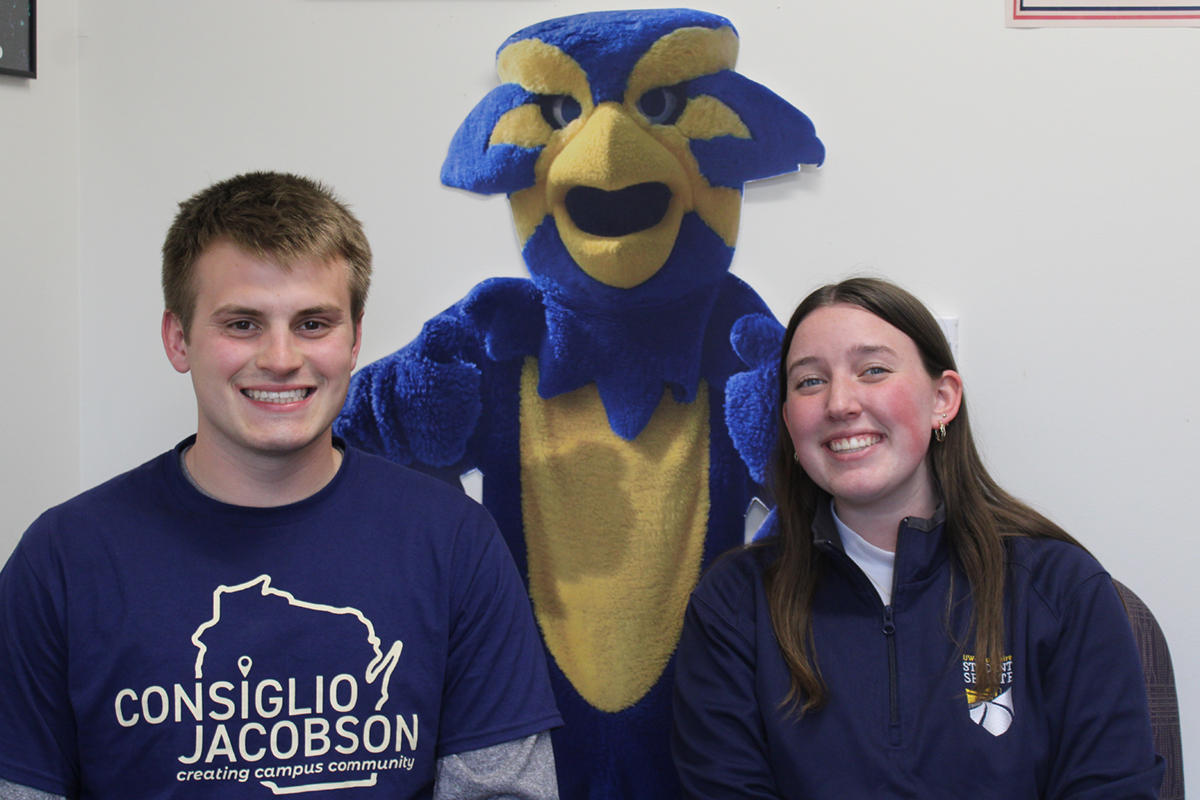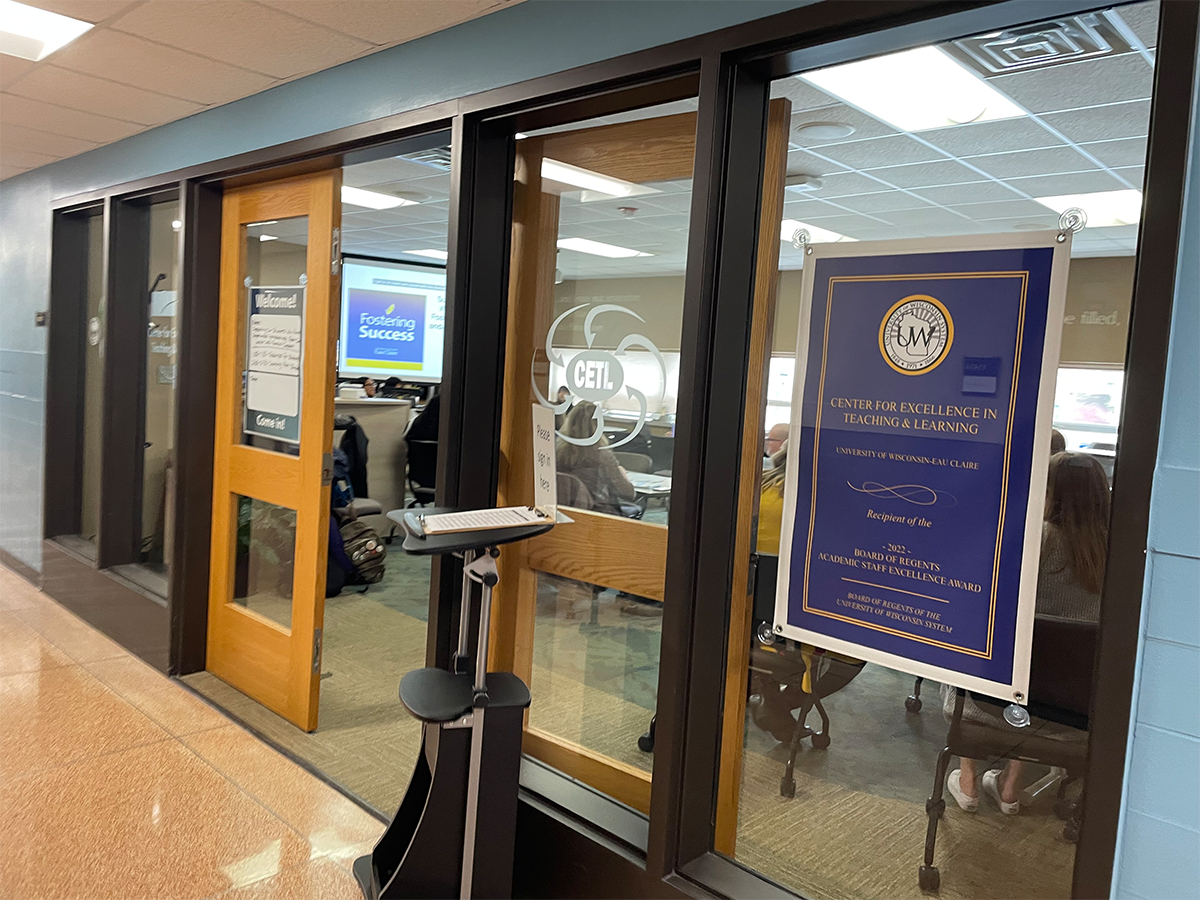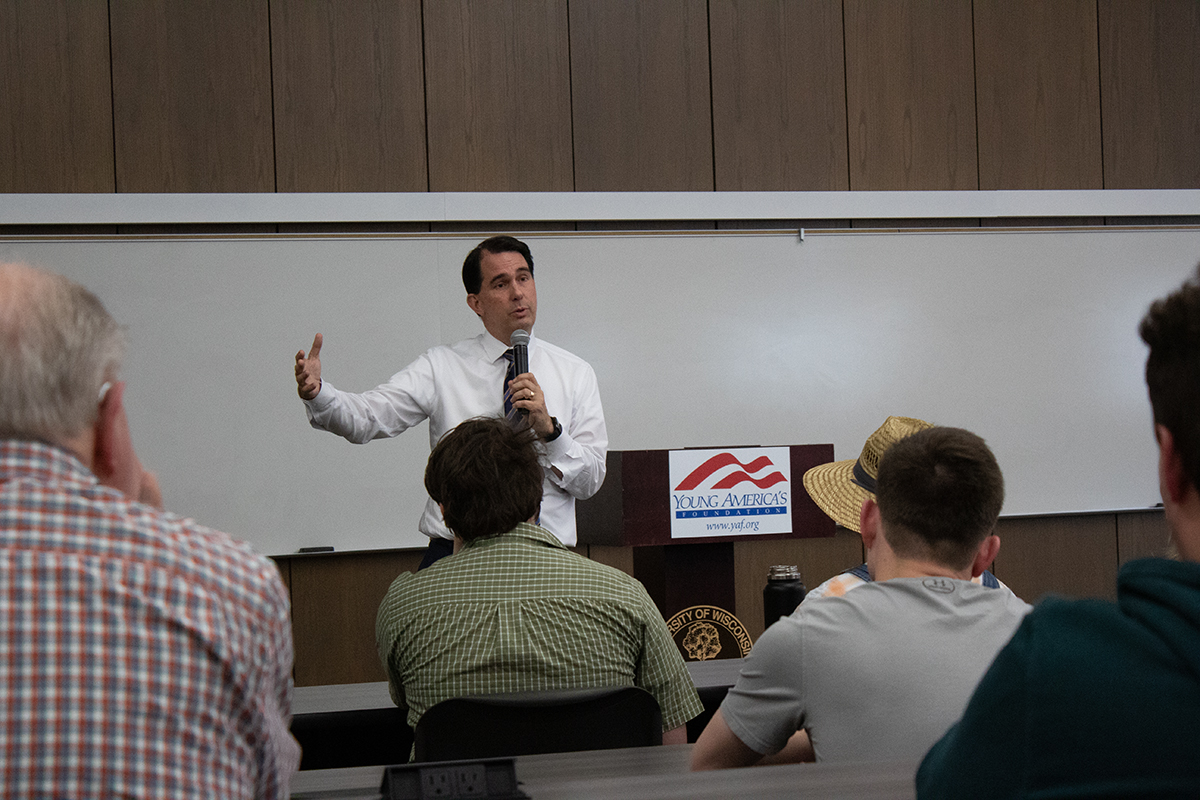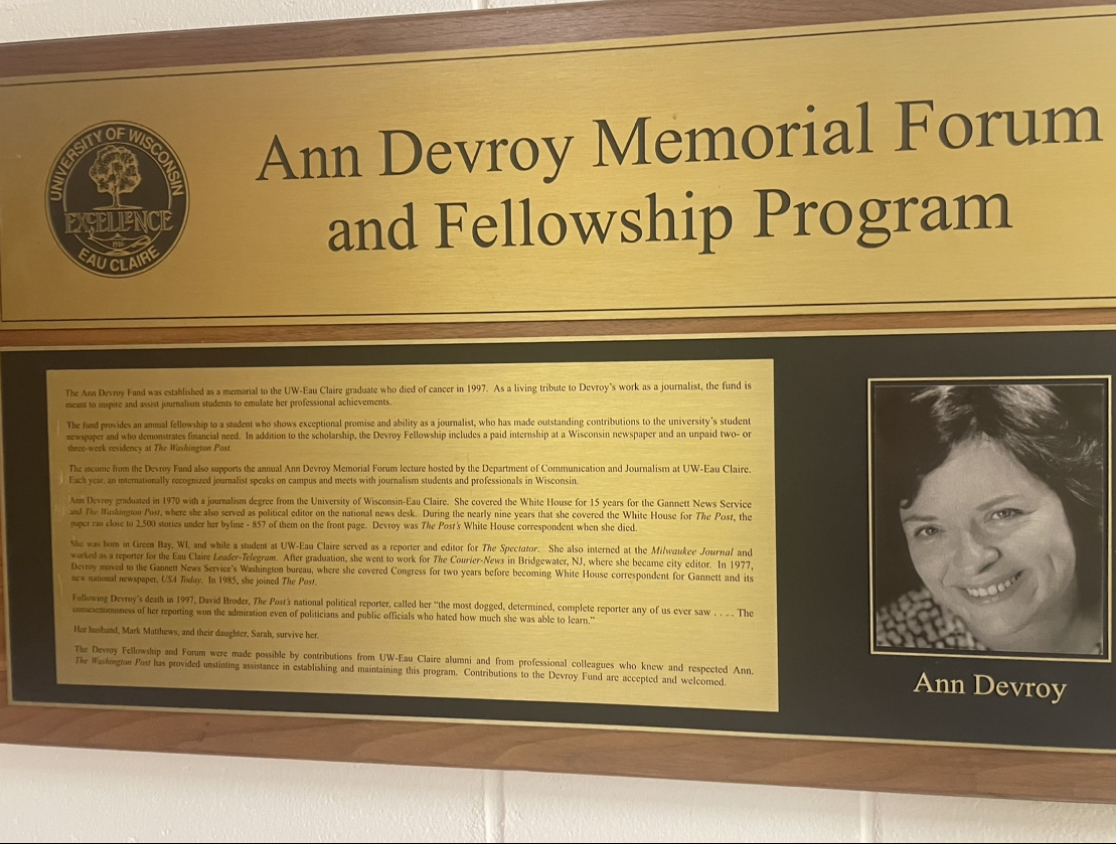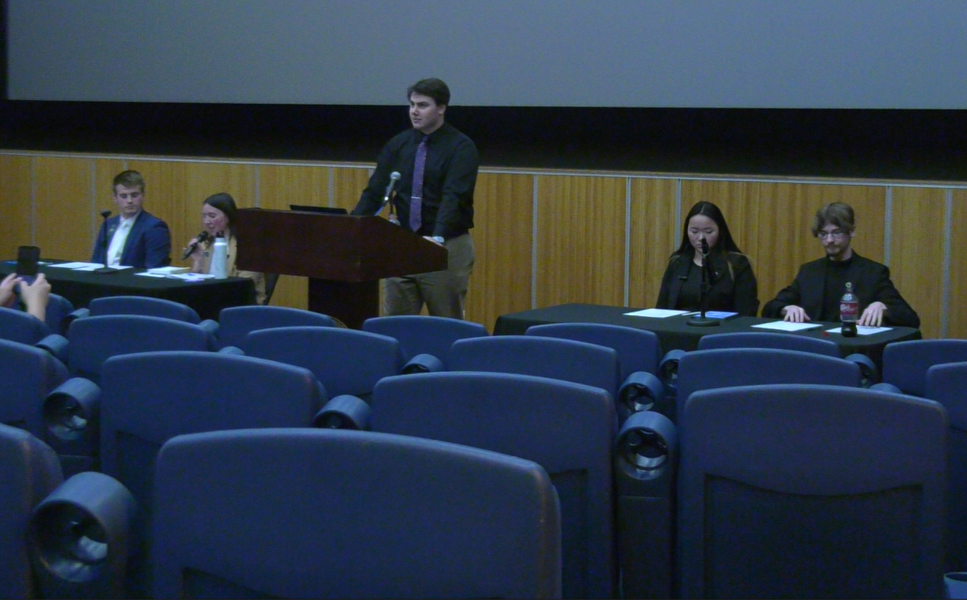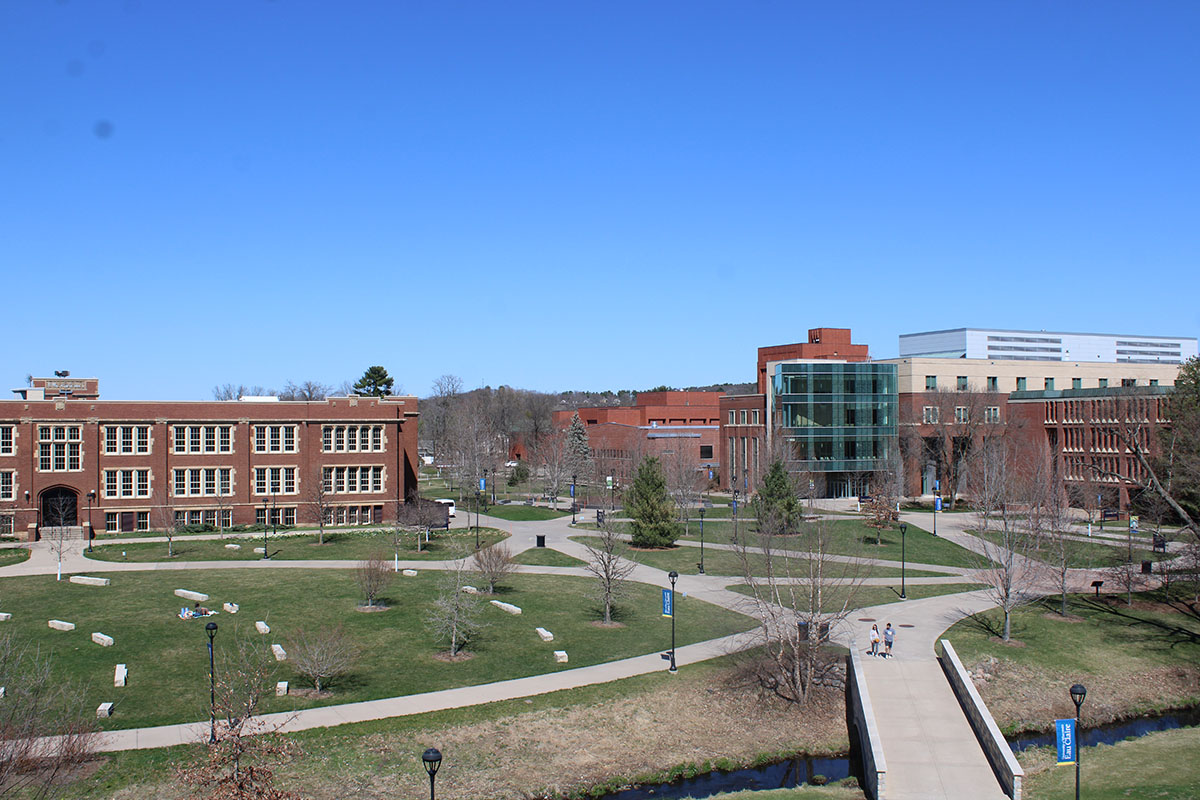While the book on the 2008 presidential debates closed Wednesday night, UW-Eau Claire hosted a debate of its own Tuesday night.
Minus the actual candidates, Student Senate sponsored a debate featuring students representing Democrats, Republicans and Independents.
Each party outlined and explained party and personal stances on a variety of issues, including the economy, government regulation, the Iraq War and foreign policy issues throughout the Middle East; education and other domestic issues and energy policy initiatives, with political science professor Steve Majstorovic serving as the moderator.
Junior Jacob Miller said he thought each side skipped around a bit, but that each of the issues is too difficult to solve through one channel.
“Nobody had really solid answers on anything,” he said, “but I learned that in a sense of being a smaller microcosm of world issues as a whole, these are real difficult issues to solve and good debate is needed.”
Beginning with the economy, Independent representative and senior Abou Amara, said the $750 billion bailout mostly affects Wall Street, while Main Street businesses also deserve some help. He added that a 90-day moratorium should be set in place so people trying to pay for mortgages are allowed some time.
“We need to give people at home the ability to try to pay for these homes,” Amara said. “Set up a 90-day moratorium so you can’t take people out of their homes while they’re trying to get back on their feet.”
Junior Adam Sorelle, also representing Independents, said the Treasury Secretary should use powers guaranteed in the bailout bill to re-negotiate rates at fixed prices so people are able to pay them off instead of resorting to sub-priming.
In light of the loss of 760,000 jobs over the past year, Democratic representative junior Jake Johnson said the best way to help the economy would be to look at ways to produce jobs through government work.
“Small businesses take projects and large businesses can also help fund them,” Johnson said. “The every day person trying to work to pay that mortgage off or that student loan off – they can find that job in construction that’s going to be there and it’s going to pay very well.”
Junior Bobby Hamill, representing Republicans with junior Bethany Aronhalt, said the government needs more bipartisanship in order to combat the problems that failed to be resolved years ago.
“It’s not just a problem of the free market, it’s a problem of government as a whole,” Hamill said.
Aronhalt said loans were being handed out to people that shouldn’t have been able to acquire them.
“(Banks) were handing out loans to people that shouldn’t be eligible for them and people were purchasing loans they couldn’t pay back,” she said. “It started back in the 90s and is a matter of personal responsibility, not just oversight and transparency.”
Energy independence is something Johnson said the country has been dealing with since President Jimmy Carter in the 1970s and will require a multitude of solutions to solve the overall problem. Along with possibly drilling for oil offshore or in Alaska, Johnson said the country will need to work on developing wind, solar and coal energy sources. He added that both sides of the aisle need to be open and supportive of new ideas, whether they agree with them or not.
Hamill said the United States needs to look towards offshore drilling and the Alaskan National Wildlife Refuge for energy sustainment and another source that many people don’t look at as a solution.
“Nuclear energy is something not brought up enough,” Hamill said. “France runs on 85 percent nuclear energy; it’s safe and we should take that challenge here in the U.S.”
He added that automobile manufacturers are already making cars with good gas mileage without government mandates and people are buying them because they realize it’s a good idea.
Amara agreed that drilling in the United States is a good idea, but said it needs to be part of a more comprehensive plan. Sorelle, however, disagreed with domestic drilling.
“I’ve been doing a cost/benefit analysis of the amount of oil in ANWR,” he said. “It does not make any sense to drill just because there’s not enough oil up there to make an impact on oil reserves we have today.”
With Democratic presidential candidate Barack Obama stating he wants a deadline of 16 months for troop withdrawal from Iraq, Johnson said it is inevitable that the United States has to leave and let the country fend for itself.
He also said Afghanistan deserves more attention than the United States is giving it and will continue to be a source of terrorism problems.
“(Troop withdrawal) is, unfortunately, what has to happen,” Johnson said. “We violated their sovereignty in the first place so once they want to take over, which they do, we should allow them to do that.”
While hindsight may be 20-20, Aronhalt said the focus should now turn towards the future and how to wrap the war up correctly. She doesn’t agree with the timetable offered by Obama because it allows for hostile countries to prepare for the day.
“It also gives a timetable to Iran to increase their influence and also for al-Qaeda to move in,” she said. “We shouldn’t have taken our eye off the ball with Afghanistan and we need to use the same surge tactic in that country.”
Sorelle said it’s a good idea that NATO troops have increased in Afghanistan and the country has actually seen multiple social and infrastructure improvements.
Amara also said leaving Iraq right away would be wrong, but since the country has a $79 billion surplus, it needs to take some responsibility with some of its infrastructure.
“Are we going to wake up one morning and say, ‘they’re sustained, infrastructure is there and we’re out of here?’ We’re going to continue our presence in Iraq that we need to turn to Afghanistan.”
Sophomore Jacob Kampen thought it was good to hear from all sides and it was positive to hear some personal things people were contributing throughout the discussion.
“Both sides had issues they disagreed with their candidate on,” Kampen said. “On one hand, they’re defending the candidate but also were able to interject with places they disagreed.”
Miller recognized the agreements and disagreements between sides and said those are things that should be brought forward.
“We saw that there are a lot of ideas we kind of agree with but a lot of things we disagree on too,” he said, “and it’s important to discuss those things more often.”

